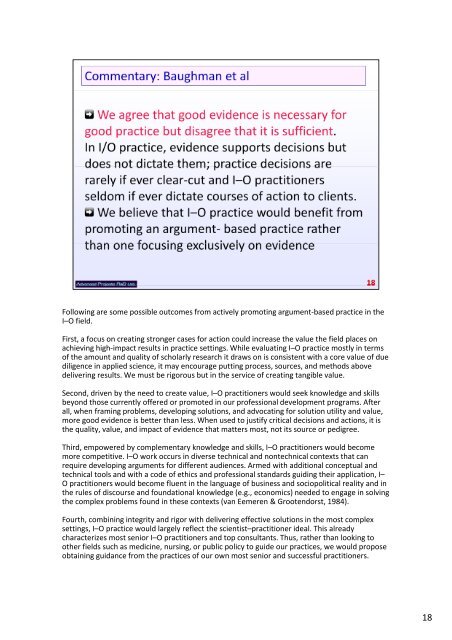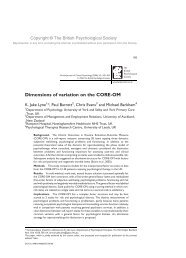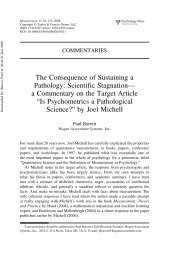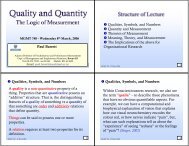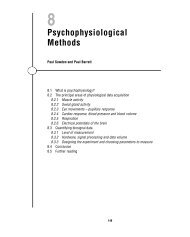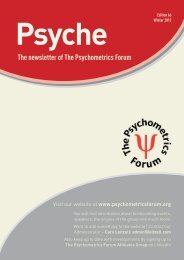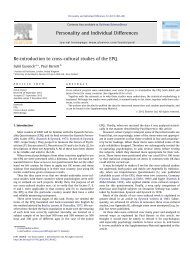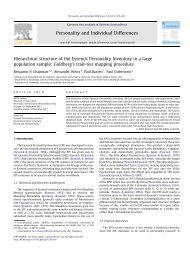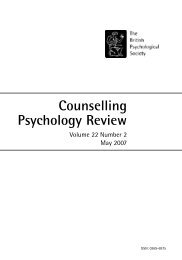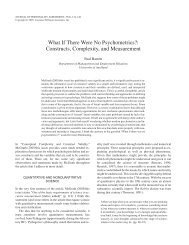Evidence-based IO psychology
Evidence-based IO psychology
Evidence-based IO psychology
You also want an ePaper? Increase the reach of your titles
YUMPU automatically turns print PDFs into web optimized ePapers that Google loves.
Following are some possible outcomes from actively promoting argument‐<strong>based</strong> practice in the<br />
I–O field.<br />
First, a focus on creating stronger cases for action could increase the value the field places on<br />
achieving high‐impact results in practice settings. While evaluating I–O practice mostly in terms<br />
of the amount and quality of scholarly research it draws on is consistent with a core value of due<br />
diligence in applied science, it may encourage putting process, sources, and methods above<br />
delivering results. We must be rigorous but in the service of creating tangible value.<br />
Second, driven by the need to create value, I–O practitioners would seek knowledge and skills<br />
beyond those currently offered or promoted in our professional development programs. After<br />
all, when framing problems, developing solutions, and advocating for solution utility and value,<br />
more good evidence is better than less. When used to justify critical decisions and actions, it is<br />
the quality, value, and impact of evidence that matters most, not its source or pedigree.<br />
Third, empowered by complementary knowledge and skills, I–O practitioners would become<br />
more competitive. I–O work occurs in diverse technical and nontechnical contexts that can<br />
require developing arguments for different audiences. Armed with additional conceptual and<br />
technical ltools and with a code of ethics and professional standards d guiding their application, I–<br />
O practitioners would become fluent in the language of business and sociopolitical reality and in<br />
the rules of discourse and foundational knowledge (e.g., economics) needed to engage in solving<br />
the complex problems found in these contexts (van Eemeren & Grootendorst, 1984).<br />
Fourth, combining integrity and rigor with delivering effective solutions in the most complex<br />
settings, I–O practice would largely reflect the scientist–practitioner ideal. This already<br />
characterizes most senior I–O practitioners and top consultants. Thus, rather than looking to<br />
other fields such as medicine, nursing, or public policy to guide our practices, we would propose p<br />
obtaining guidance from the practices of our own most senior and successful practitioners.<br />
18


